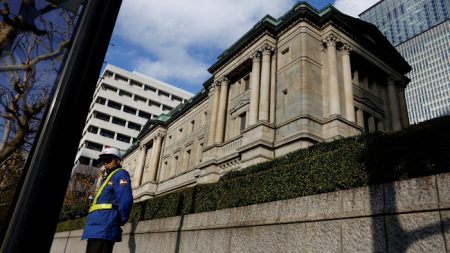Unlock the Editor’s Digest for free
Roula Khalaf, Editor of the FT, selects her favourite stories in this weekly newsletter.
Israel’s parliament approved two pieces of legislation on Monday that ban a 74-year-old UN agency for Palestinian refugees from operating within Israeli territory and also cut diplomatic ties with the organisation.
The measures threaten the ability of the United Nations Relief and Works Agency for Palestine Refugees in the Near East (UNRWA) to provide food, medicine and shelter to nearly 2mn Gazans displaced by war in the Palestinian enclave.
The legislation defied Israel’s closest European allies, alongside Japan and South Korea, who had warned on Sunday that barring UNRWA from operating within Israel would have “devastating consequences on an already critical and rapidly deteriorating humanitarian situation”.
“If UNRWA goes away, you will see civilians — including children, including babies — not be able to get access to food and water and medicine that they need to live,” US state department spokesperson Matthew Miller said before the law was passed.
The US is both Israel’s largest diplomatic and military backer, and the biggest contributor to UNRWA’s budget.
Israeli Prime Minister Benjamin Netanyahu welcomed the legislation, which was propelled through the Knesset by not just his far-right coalition allies, but most Jewish parliamentarians. Dissent from Palestinian lawmakers with Israeli nationality was shouted down during an acrimonious but short debate.
The first law does not explicitly bar UNRWA from operating in besieged Gaza and the occupied West Bank. However, the second severs diplomatic contact between Israel and the agency, which will disrupt the daily mechanics of moving humanitarian aid into Gaza and the diplomatic status of UNRWA officials.
Israel is obliged by international law to facilitate the entry of humanitarian aid into Gaza, which Netanyahu said on X that it would continue to do.
UNRWA chief Philipe Lazzarini said the vote violated Israel’s obligations under international law. “This is the latest in the ongoing campaign to discredit UNRWA and delegitimise its role,” Lazzarini said on X. “These bills will only deepen the suffering of Palestinians, especially in Gaza.”
UN secretary-general António Guterres said in a statement on Monday that he was “deeply concerned” by the adoption of the Israeli laws, which he warned “could have devastating consequences for Palestine refugees” and would impede the peace process.
“There is no alternative to UNRWA,” said Guterres.
The Israeli government had accused the UNRWA of permitting the collusion of many of its employees with the Palestinian militant group Hamas on October 7, 2023, when thousands of fighters breached the border between Gaza and southern Israel.
It provided little evidence to back its claims, and UNRWA said in August it had sacked nine staff who might have been involved in the attack, which killed 1,200 people, according to Israeli officials, and triggered the war in Gaza.
However, right-wing Israeli politicians have long loathed the UN agency because it registers the descendants of Palestinian refugees from the 1948 war, which led to the creation of the state of Israel, to a list of those who demand the “right to return” to their ancestral homeland.
Netanyahu has said previously that UNRWA “perpetuates the Palestinian refugee problem”.
While the legislation will not take effect for at least three months, its immediate impact would be felt in East Jerusalem and the West Bank.
Israel has annexed East Jerusalem, home to over 300,000 Palestinians, in a move not recognised by most of the international community, and considers the entire city its sovereign territory.
UNRWA’s offices in East Jerusalem were attacked by right-wing activists this year.
UNRWA runs schools, health clinics and other essential services for Palestinians in East Jerusalem, in addition to assisting 5mn Palestinian refugees in Gaza, the West Bank, Lebanon, Syria and Jordan.
Read the full article here














